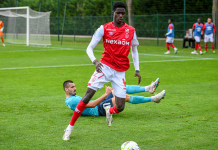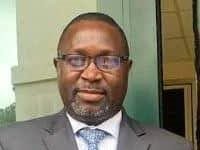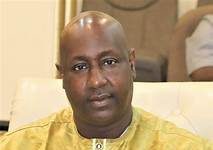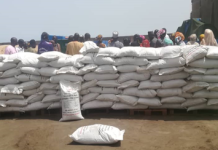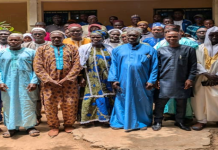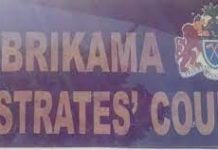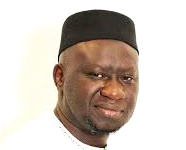Abdoulie G. Dibba
“The Inter-Party Committee (IPC) would be a very useful platform for advancing consensus electoral reforms as it has been a  useful instrument in other countries and we see no reason why that cannot be the case in the Gambia,” said Dr. Mohamed Ibn Chambas, the Special Representative of the UN Secretary General for West Africa and the Sahel.
useful instrument in other countries and we see no reason why that cannot be the case in the Gambia,” said Dr. Mohamed Ibn Chambas, the Special Representative of the UN Secretary General for West Africa and the Sahel.
Dr. Chambas said this at a press briefing at UN House on Thursday, 5 May 2016, in response to a question by this reporter on the proposed electoral reforms submitted by the group of six opposition parties.
The Special Representative of the UN Secretary General for West Africa and the Sahel headed the recently concluded ECOWAS- AU- UN Joint Mission to the Gambia to engage the stakeholders ahead of the December 2016 presidential election to ensure credible and inclusive electoral process in an atmosphere of peace and tolerance.
Elaborating further on the issue of electoral reforms, Dr. Chambas said they have discussed this with political parties but that election is about competition among political parties and in that regard they have heard the concerns and some proposals for electoral reforms advanced by the opposition parties and that they had also listened to the ruling party.
“For us, what we should encourage and we are encouraging, is the inter-party dialogue. As you know, the Inter-party Committee has been dysfunctional and I think this contributed to the present tensions that we are facing but we are happy that it has been re-instated and we had the assurance of both sides to continue the dialogue within its framework,” said the Special Representative of the UN Secretary General.
Dr Chambas said once the two sides i.e. ruling and opposition parties are talking to each other and build the spirit of compromise, arriving at decisions together through consultations and discussions, then this will be the right approach towards resolving whatever differences they may have.
“So, we leave here assured that IPC will now be functional; both sides will be there and then through that we believed that many issues currently dividing the two sides i.e. ruling and opposition parties, they can find peaceful consensus in which they can be resolved,” concluded Dr. Chambas.
Key among the demands and electoral reform proposals by opposition parties are the non -interference of public servants and the disciplined force in partisan matters, protection from the abuse of incumbency, equal and periodic access of the opposition to state owned media to explain the content of their manifestoes and debate on them, etc.

